- Home
- Heather Graham
Echoes of Evil Page 24
Echoes of Evil Read online
Page 24
“Knock yourself out,” Lacy said. “Just don’t get in my way.” He turned and walked off, heading for his unmarked car.
“Well, I think you pissed him off pretty good,” Liam noted.
“Sorry.”
“Hell, no, don’t be sorry. He was pissing me off, too. Want to check with the neighbors?”
“You bet. I doubt that everyone in the neighborhood is deaf. And, anyway, what the hell is he talking about? The body showed up in your territory.”
“That’s right. He’d best not get in my way,” Liam said softly.
Brodie hesitated, letting out a sigh.
“We have to get into her house, too, Liam. Wish to hell I’d thought of that before I pissed him off.”
“We’ll get the key. I’ll go in. You stay in the car.”
“Will do,” Brodie promised.
* * *
The museum was very nicely busy.
As Kody talked to people, drew pirates with a few children and talked about the Civil War in Key West and pirates and wreckers in the islands, she struggled with the dilemma of calling Brodie now—or waiting to show him the picture when he returned.
She knew he was busy with Liam. She didn’t want to interrupt him when he was questioning someone or, perhaps, even getting close to the truth.
She didn’t know how long he’d be in Marathon.
Finally, he called her.
“Hey, how’s it going?” she said.
“Like all such things—slowly,” he said.
“Anything solid yet?”
“Not really. I’m waiting for Liam to get a key. Then, we’ll see if we can find notes or anything in Mathilda Sumner’s house, or...anything to suggest how she was found with just a bathing suit on. Anyway, how are you doing?”
She almost asked him if he’d picked up the picture of her and her father that was on the dresser; but in the busy museum, with people all around her, she was beginning to wonder if she wasn’t being a little bit paranoid.
“Things are fine here, but...Brodie, I did find something!”
“What?”
“In the ‘Artist’s Corner,’ I have pictures of my dad on the wall... Arnold Ferrer is in one of them! You know...maybe you don’t know, but my dad was great with fellow musicians—always trying to get them out there, give them a venue for playing. I can’t really tell when...maybe a little more than a decade ago... Arnold Ferrer played with my dad.”
“In Key West?”
“I don’t know—I don’t know when the picture was taken or where. You can see it when you get back.”
“Interesting. You’re sure it was Arnold Ferrer?”
“His picture was in the paper and on the news—yes, I’m sure.”
“All right, thanks, Kody. That does sound very interesting. When you have a chance, see if you can find anything with him and your dad and Cliff. Ask Cliff, if you see him. I’m willing to bet he might remember if he played with Ferrer. Anyway, I’ll be back later. Keep in touch. Call me if anything comes up that might be something that pushes us in the right direction.” He hesitated a minute. “Stay safe,” he said.
“Of course,” she told him, and then added, “You, too.”
“Liam is back, heading to Mathilda’s house. Talk to you soon.”
The call ended.
“Can you help me draw a pirate?”
She looked up; a little boy was standing there, staring at her hopefully.
She realized that she’d sat down at one of the tables they’d set up for children’s activities.
“Of course, I’d be happy to help you draw a pirate,” she assured him.
And when she was done, she’d hurry back to the “Artist’s Corner” and study every picture she had on the wall.
* * *
Mr. Eli Quill was deaf; they knocked on the door for a long time before he answered.
He was old—and a big grouch.
“Hold your horses, hold your horses!” he called out. A minute later, the door opened. His mushy beard and mustache were whiter than snow, as was the hair on his head. He walked with a cane, and he stared at them with serious annoyance.
“Hello, sir, and our pardon,” Brodie said politely. “We’ve come to see if you know anything at all about your neighbor, Mathilda Sumner, and where she might have gone the night before last, or if, by any chance, she said anything at all to you.”
“Cops already came and talked to me,” he snapped. “I didn’t see anything; I didn’t hear anything.”
“Did you know her well?” Liam asked.
“Well enough,” he said gruffly, and then he shook his head, eyes lowered. “Good girl, nice girl. Woman—too old to be a girl, right? She’d come and play for me sometimes.”
“That was nice.”
“Darned tootin’!”
“Then...did she tell you about anything she wanted to do, anything special that was going to happen?” Brodie asked.
He shrugged, and then rubbed his beard. “She was pretty excited the last few days. Something about playing somewhere or doing something with old friends... I don’t know what it was. She wasn’t as happy when that friend of hers died down in Key West, but...she was still up to something.”
“With who, do you know?” Brodie asked.
He shook his head, and then peered at them closely. “Why are you asking? I heard that she went swimming and drowned.”
“Her body was found down in Key West. We don’t know how she got there,” Liam said.
“Oh, she’s a cruel mistress, the sea. Water travels, you know.”
“We do know, of course,” Brodie said. “The way she was washed up, though...she was a good swimmer, I heard. Good swimmers don’t usually go too far out. Especially at night. Especially when they don’t like dark water.”
“I didn’t see her leave the house. I’m sorry.”
They thanked him, and started knocking on other doors. They came upon a young mother who hadn’t really known Mathilda. “Two toddlers. I’m afraid I don’t know anything about anyone anymore.”
The next person they talked to was a construction worker, a man walking home, still in his hard hat and carrying an old lunch pail.
“Mathilda, what a shame,” he said.
“Did you see her leave the other night?”
He shook his head. “No, I’m sorry. She drowned, right?”
Liam glanced at Brodie.
“She drowned. We don’t know how.” They would have to answer that question every time they spoke to anyone, it seemed.
Detective Lacy really had put it off as nothing more than an accident.
“Time to try Mathilda’s house?” Liam suggested.
“The house,” Brodie agreed.
The kitchen was spotless except for one coffee cup in her sink. Her bills were neatly kept in a stack on her counter. Her bedroom was just as tidy.
Brodie went through her closet; she had several purses and shoulder bags. As he moved them aside, he realized that one was heavier than the others.
Liam had given him gloves—they didn’t know just what they were dealing with, and, if it should prove to be a crime scene, they didn’t want to contaminate anything. “Not that anything happened here,” Liam mused. “No defensive wounds—she didn’t know she was in trouble when she went into the water.”
Brodie opened the heavy bag; it must have been the one she’d been carrying last.
Her wallet was in it, with her ID. Also her car keys, along with a compact, tissues and a few guitar picks.
“Liam!”
“Yeah?” Liam had been in her den.
“She didn’t bring a purse. Everything is here—license, keys, everything.”
“I think we knew that, but now...”
There was a slip of paper in her purse.
> There was nothing but a name written on it, and the word, “Yah!”
The name was Michael McCoy.
* * *
The day was winding down.
Sometimes, people came to the door late—thinking that since it was Key West, everything was open late.
A few people were still walking around in back, but Colleen wasn’t allowing any new visitors in. Kody started to take a walk herself, just to count those who remained in the various rooms.
When she came back to the “Artist’s Corner,” she saw that a woman was standing there—much as she herself had been earlier—staring at the wall. She was a petite brunette and, when she turned, Kody saw that she had huge brown eyes and freckles, and an easy smile.
“Hello,” she said, walking straight toward Kody as if she knew her. “You’re Dakota McCoy, right?”
“Yes, I am. Hi, how do you do? Nice to meet you.” She arched her brows, smiling—the implication, of course, being that she needed to know who she was meeting.
The young woman laughed softly. “Adelaide. Adelaide Firestone. I came down here to... I came down because of Arnie.”
“Oh, Adelaide! I’m so pleased to meet you—and so very sorry! I never did get to meet Arnold. We corresponded through email. I would have met him last week...”
And she hadn’t. The reason was obvious.
Adelaide nodded. “It’s horrible,” she whispered. “No good deed goes unpunished, right?” she asked. “I’m so glad that the police have taken this so seriously. I couldn’t help but wonder at first if it was a hate crime, but I don’t believe that the police think that’s the case. I don’t care what the motive was—this was a horrible crime. People say it all the time, but the world is really a lesser place without Arnie in it.”
“I believe you, from what I know,” Kody said softly. “I wish I could say something.”
“I’m all right, really.” She looked around the room. “Arnie and I were together for a few years. I knew that something wasn’t right and that we weren’t going to make it as a couple, but...”
“I know, Adelaide. I’ve seen that same situation with people before. I had a great friend in college, and I would always be pretending to date him when his dad visited. His dad never did accept that his only son was gay. His loss. I still hear from my friend. He’s actually a police chief up in north Florida now. He tried, like your Arnie, to be what he wasn’t. And he, like your Arnie, too, is one of the best human beings I know.”
She was surprised when the young woman walked over and impulsively hugged her tightly. Kody responded.
“We have a daughter. Haley. I just couldn’t bring her down here for this. She’s turning six soon.”
Adelaide pulled away, wiping her eyes. “I just wanted to come in and speak with you, meet you, and tell you that I intend to honor everything that Arnie wanted to do. And that’s to tell the truth about history. I’m just afraid, sometimes, that there’s someone out there who doesn’t like what we’re doing. Or, they’re afraid of their part in it—oh, not their part, obviously, but you know what I mean—the sins of the fathers and all that.”
“They’ll find the truth,” Kody promised her.
Adelaide smiled. “I was just looking at that picture of your dad and Arnie. It’s so nice that he’s part of your museum! I have another one, by the way. If you’d like it, I’d be happy to get it to you.”
“I’d love to have another picture,” Kody assured her. “I’m going to be redoing the display here.” She paused. “Another friend died...another musician. I’m trying to figure out exactly how best to showcase people. Of course, Arnie will have his place in the Civil War Era room, too. Along with the Victoria Elizabeth.”
“Thank you. One day, I’m going to bring Haley here. She’ll get to understand just how terrific her dad was.” Adelaide looked as if she might start crying again; instead, she turned back to the wall of photos.
“These are just great! You must have pictures of your dad with just about everyone—and still, you put up lesser-known musicians.”
“My dad went through a very bad period—he struggled with drug and alcohol addiction in his younger years. To me, though, the best thing about my dad was that he was always just a man who really loved his music—and he was happy to share with others.”
Kody walked over to stare at the wall again. She found herself looking at one in particular, wondering why something about it drew her attention.
She had always seen it as a picture of her dad, out in front. He was in the Keys, at a tiki bar, and it had been taken maybe two or three years before his death.
Cliff was in the picture, in the background. She’d always known that.
At the bottom of the picture, though, was a hand—as if someone had been speaking emotionally and gesturing with their arms and hands—and the hand had just been caught in the image. Kody hadn’t had any of the pictures retouched; they were her father in his natural element. Like Tom Petty was known to suddenly play in Gainesville coffee houses or bars, her father had often just wound up playing at places in the Keys.
Something in the shot bothered her, and she didn’t know what. What was it about the hand?
Adelaide wandered over to her. “Hey, Arnie’s in that one, too,” she said.
“What? Where? Do you mean—that’s his hand?”
“No. See, back there. Far right corner near the stage. He’s holding the neck of a guitar, and he’s turned away, you can only see a bit of his face. But that is Arnie.”
“So, my dad, Cliff and Arnie. And...”
The hand.
That meant that Cliff had known—or at least met—Arnold. Why hadn’t he said something?
“Anyway, it’s an absolute pleasure to get to know you,” Adelaide said. “I’m going to head back to the house. I’m going through Arnie’s clothing, sorting it for Goodwill or the Salvation Army. That would make him happy.”
“Thank you so much for coming to visit, Adelaide. I’m glad I got to meet you.”
Adelaide smiled, and left the room. Kody turned to stare at the picture again. Then she suddenly knew who belonged to the hand.
Bill Worth. She recognized the ring that he wore on his third figure; it was a gold ring with the initials WW engraved on it, a present from his father.
She felt chilled, but then wondered just what it might mean.
She knew that her father played with other people; her father had been close friends with both Cliff and Bill. It meant nothing that the man was there, in the picture.
Surely, nothing at all.
Except that according to Special Agent Angela Hawkins, Krewe of Hunters, Bill Worth was a descendant of a man named Gonzales, a man who meant to purchase the best slaves possible, and work them until they collapsed beneath the hot Georgia sun. And here was proof he’d been in the same room with a murdered man, the descendant of the owner of the very same slave ship.
“Ridiculous,” she said aloud. She’d known Bill forever. He’d never kill—period. Much less over something that a long-gone ancestor had done.
“Kody?”
She’d been staring with such determination at the wall of pictures that she hadn’t heard Colleen come into the room.
“Shall I help you now?” Colleen asked Kody. “I think I’ve got everyone out.”
Kody smiled, hoping Colleen hadn’t seen how she’d jumped.
“No, not today,” Kody said. “I’m just not ready, I guess. But we will start tomorrow.”
“Want to head out with me?” Colleen asked.
“No, you get home. You’ve gone above and beyond. Get some rest. You know what I’m going to do? Just a bit of reading. Liam sent me email translations of some of the documents that Arnold Ferrer left. I’m going to go over them.”
“Okay.”
“You going out on the town?”
&n
bsp; Colleen grinned. “Maybe. For a bit. But hey, I like being home.”
“Your dream ghost, right? And you think that he’s Cliff,” Kody murmured.
“Oh, he’s so sweet. Such a gentleman.”
“He was married,” Kody reminded her.
“Yes, I know. He’s just kind and gentle and makes me feel good. That doesn’t hurt anyone at all.”
“No, it doesn’t,” Kody agreed.
“I’ll lock up. You have your keys, right?”
“I do. Good night.”
Colleen left. Kody kept staring at the wall. Three people dead. Did those deaths have anything to do with one another? The drowned woman... Mathilda Sumner. Did she have anything at all to do with the Victoria Elizabeth?
Only one slim factor joined them all together.
They had been musicians who played guitar.
She moved closer to the wall, searching the images. There were several women in the different pictures. Differing ages, differing years. She hadn’t known Mathilda Sumner, and she didn’t know what she’d looked like. Thus far, her image hadn’t been on the news or in the papers—not that Kody had seen.
She walked to the front, sliding back behind the little counter. She chose not to use the work computer, and drew out the laptop she kept beneath the desk. She pulled it out and keyed in Mathilda Sumner’s name.
All kinds of information on her popped up; Kody went to the musician’s website and looked under “Photos.”
And right there, the very first of the photos, was a duplicate of one picture that Kody had on her wall.
Mathilda Sumner, her eyes expressing awe as she stared up at the man who had an arm around her, grinning at the camera—Michael McCoy.
“I probably met her myself,” Kody muttered. She even recognized the venue in this one—it had been a time when Michael had been playing at Mallory Square. Kody had been about fourteen. It had been billed as “Michael McCoy and Friends.” He had Cliff up that day, and all kinds of performers. She remembered the day because her dad and Cliff had insisted that she showcase Cliff’s song—“Love in the Sun.” It was one of the first times she’d sung in front of such a large crowd.
“So,” she said aloud softly again, “every one of you had a connection to my father. You knew him, played with him. But my dad has been dead for a decade!”

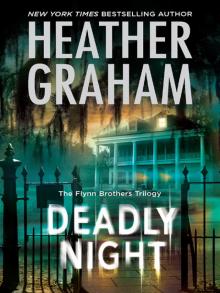 Deadly Night
Deadly Night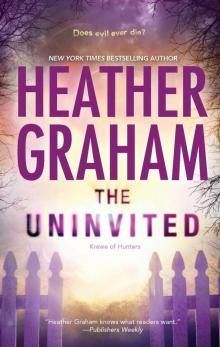 The Uninvited
The Uninvited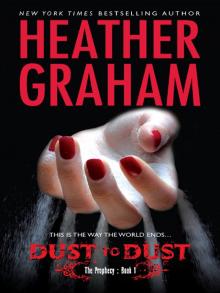 Dust to Dust
Dust to Dust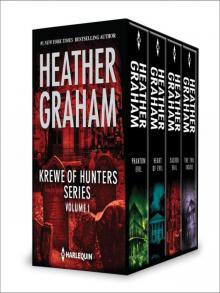 Heart of Evil
Heart of Evil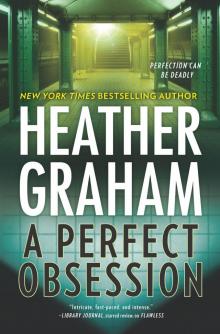 A Perfect Obsession
A Perfect Obsession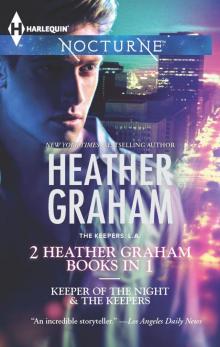 The Keepers
The Keepers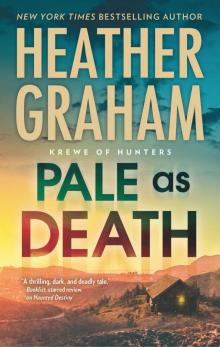 Pale as Death
Pale as Death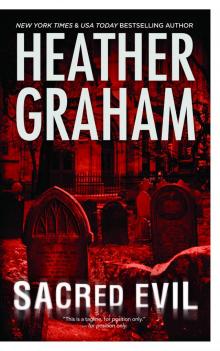 Phantom Evil
Phantom Evil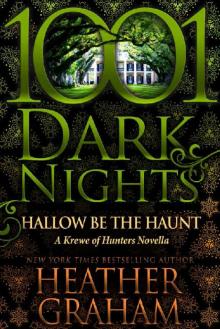 Hallow Be the Haunt
Hallow Be the Haunt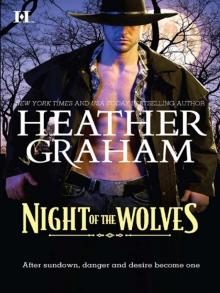 Night of the Wolves
Night of the Wolves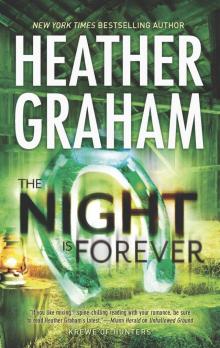 The Night Is Forever
The Night Is Forever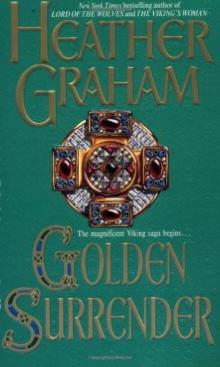 Golden Surrender
Golden Surrender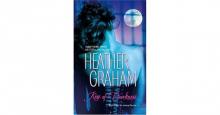 Kiss of Darkness
Kiss of Darkness Beneath a Blood Red Moon
Beneath a Blood Red Moon A Dangerous Game
A Dangerous Game Ghost Shadow
Ghost Shadow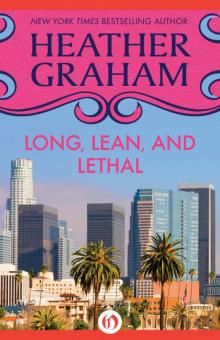 Long, Lean, and Lethal
Long, Lean, and Lethal Fade to Black
Fade to Black The Rising
The Rising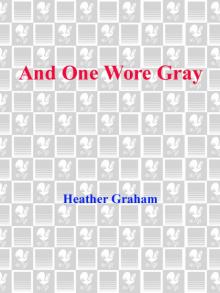 And One Wore Gray
And One Wore Gray Rebel
Rebel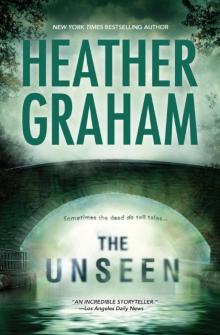 The Unseen
The Unseen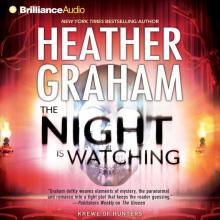 The Night Is Watching
The Night Is Watching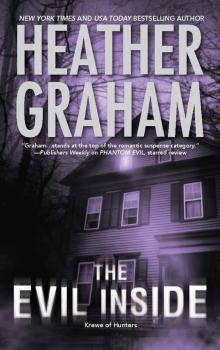 The Evil Inside
The Evil Inside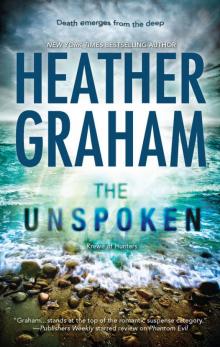 The Unspoken
The Unspoken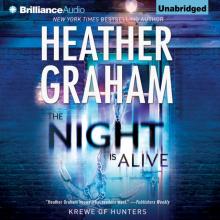 The Night Is Alive
The Night Is Alive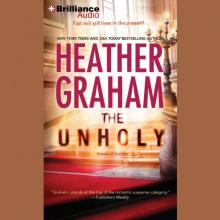 The Unholy
The Unholy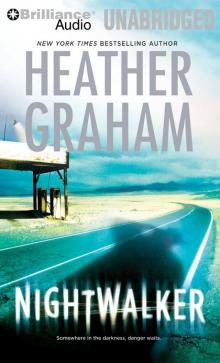 Nightwalker
Nightwalker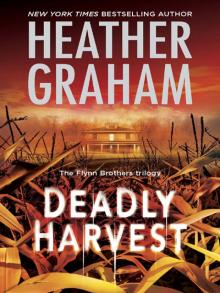 Deadly Harvest
Deadly Harvest An Angel for Christmas
An Angel for Christmas A Pirate's Pleasure
A Pirate's Pleasure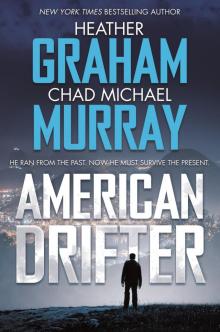 American Drifter
American Drifter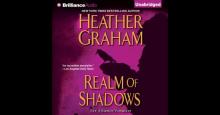 Realm of Shadows
Realm of Shadows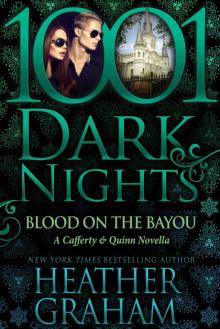 Blood on the Bayou
Blood on the Bayou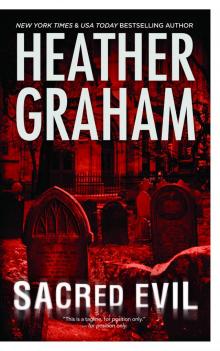 Sacred Evil
Sacred Evil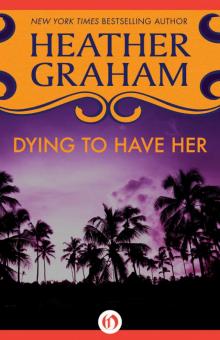 Dying to Have Her
Dying to Have Her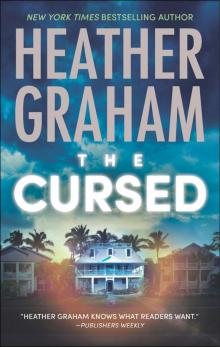 The Cursed
The Cursed Captive
Captive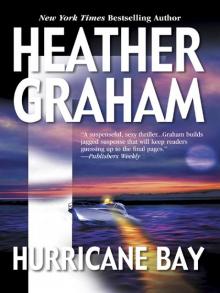 Hurricane Bay
Hurricane Bay Drop Dead Gorgeous
Drop Dead Gorgeous Ghost Memories
Ghost Memories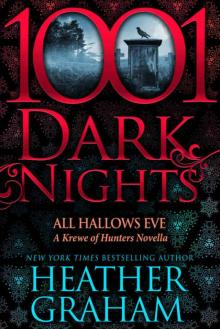 All Hallows Eve
All Hallows Eve Dying Breath
Dying Breath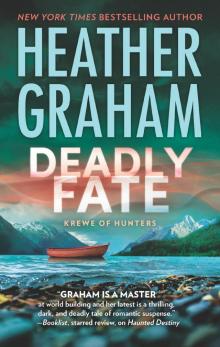 Deadly Fate
Deadly Fate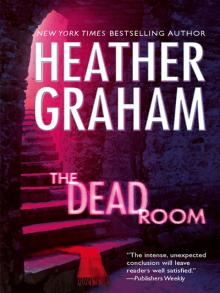 The Dead Room
The Dead Room Lord of the Wolves
Lord of the Wolves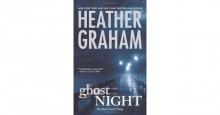 Ghost Night
Ghost Night Ghost Walk
Ghost Walk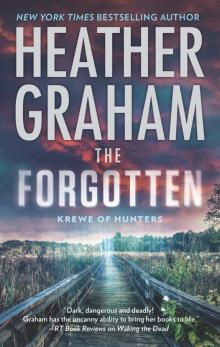 The Forgotten
The Forgotten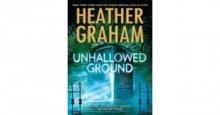 Unhallowed Ground
Unhallowed Ground One Wore Blue
One Wore Blue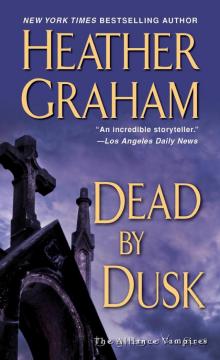 Dead By Dusk
Dead By Dusk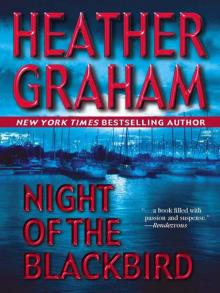 Night of the Blackbird
Night of the Blackbird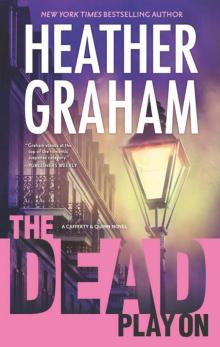 The Dead Play On
The Dead Play On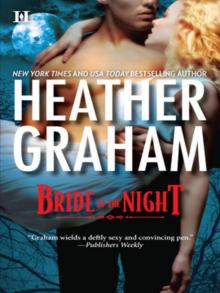 Bride of the Night
Bride of the Night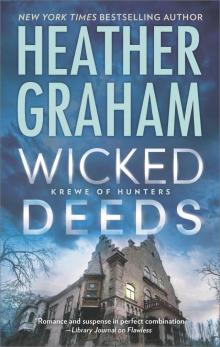 Wicked Deeds
Wicked Deeds The Forbidden
The Forbidden Triumph
Triumph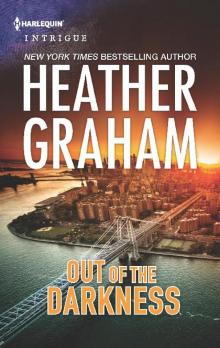 Out of the Darkness
Out of the Darkness Love Not a Rebel
Love Not a Rebel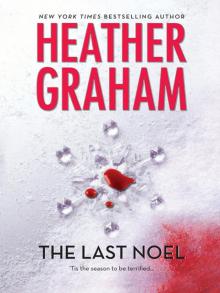 The Last Noel
The Last Noel Tall, Dark, and Deadly
Tall, Dark, and Deadly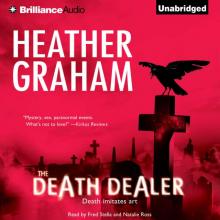 The Death Dealer
The Death Dealer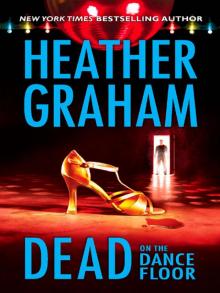 Dead on the Dance Floor
Dead on the Dance Floor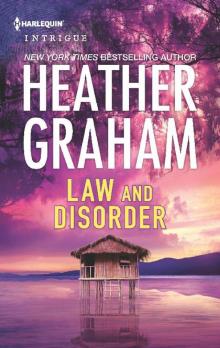 Law and Disorder
Law and Disorder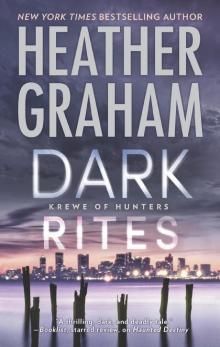 Dark Rites
Dark Rites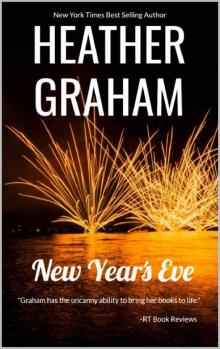 New Year's Eve
New Year's Eve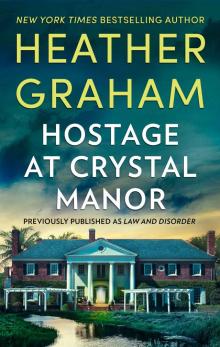 Hostage At Crystal Manor
Hostage At Crystal Manor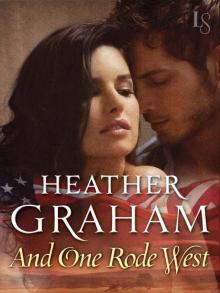 And One Rode West
And One Rode West Home in Time for Christmas
Home in Time for Christmas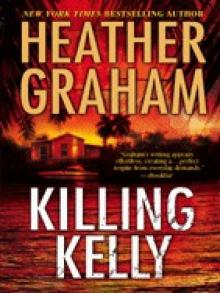 Killing Kelly
Killing Kelly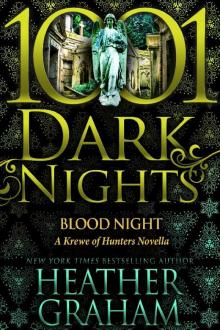 Blood Night
Blood Night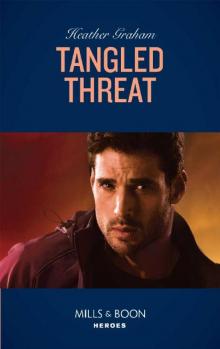 Tangled Threat (Mills & Boon Heroes)
Tangled Threat (Mills & Boon Heroes)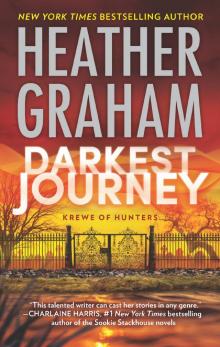 Darkest Journey
Darkest Journey Glory
Glory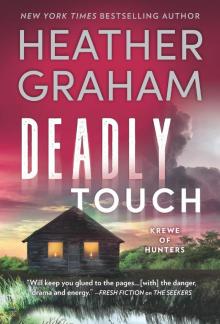 Deadly Touch
Deadly Touch An Unexpected Guest
An Unexpected Guest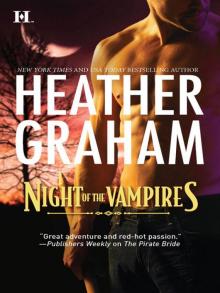 Night of the Vampires
Night of the Vampires Seize the Wind
Seize the Wind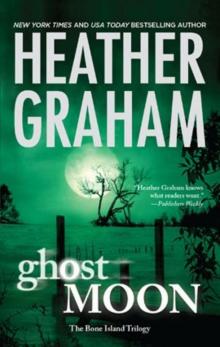 Ghost Moon
Ghost Moon The Vision
The Vision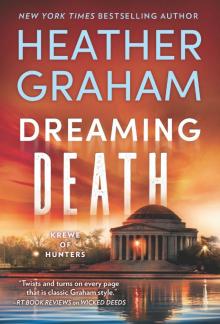 Dreaming Death
Dreaming Death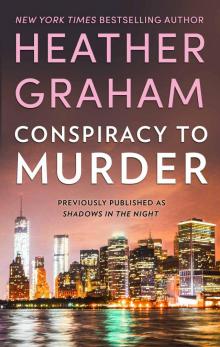 Conspiracy to Murder
Conspiracy to Murder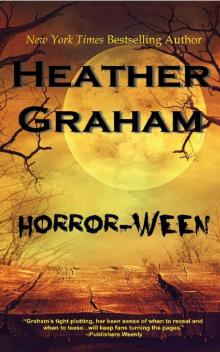 Horror-Ween (Krewe of Hunters)
Horror-Ween (Krewe of Hunters)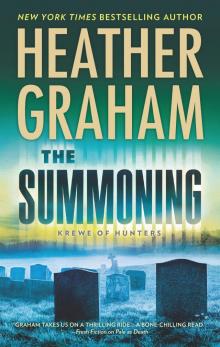 The Summoning
The Summoning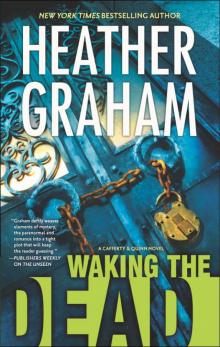 Waking the Dead
Waking the Dead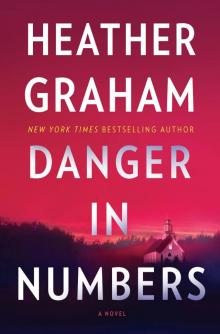 Danger in Numbers
Danger in Numbers The Hidden
The Hidden Sweet Savage Eden
Sweet Savage Eden Tangled Threat ; Suspicious
Tangled Threat ; Suspicious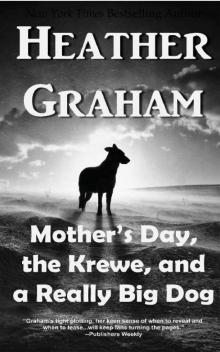 Mother's Day, the Krewe, and a Really Big Dog
Mother's Day, the Krewe, and a Really Big Dog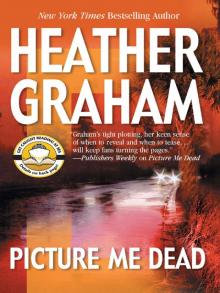 Picture Me Dead
Picture Me Dead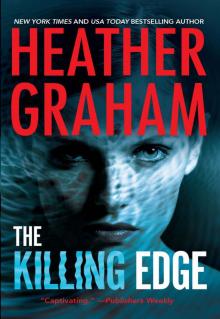 The Killing Edge
The Killing Edge St. Patrick's Day
St. Patrick's Day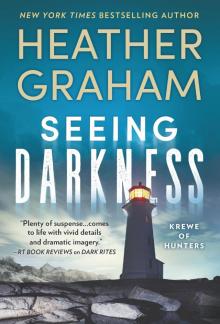 Seeing Darkness
Seeing Darkness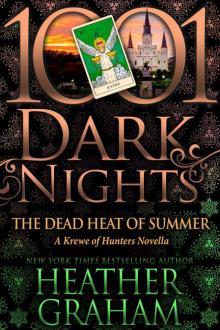 The Dead Heat of Summer: A Krewe of Hunters Novella
The Dead Heat of Summer: A Krewe of Hunters Novella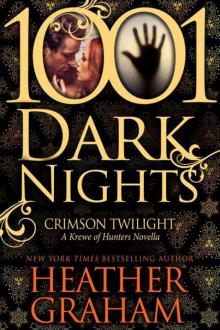 Crimson Twilight
Crimson Twilight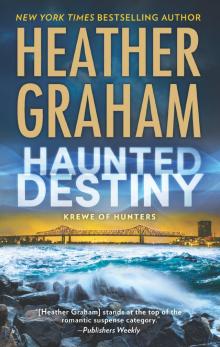 Haunted Destiny
Haunted Destiny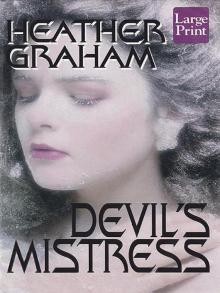 Devil's Mistress
Devil's Mistress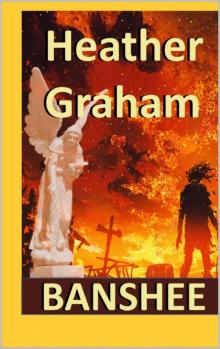 Banshee
Banshee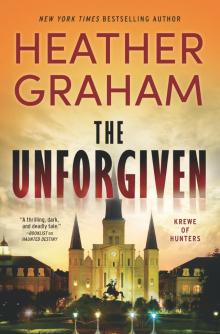 The Unforgiven
The Unforgiven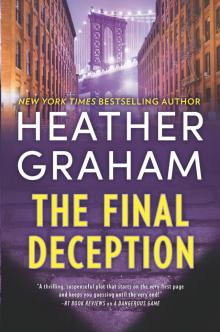 The Final Deception
The Final Deception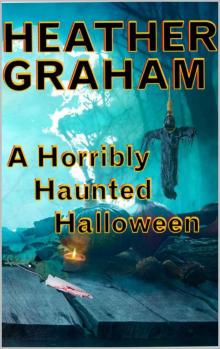 A Horribly Haunted Halloween
A Horribly Haunted Halloween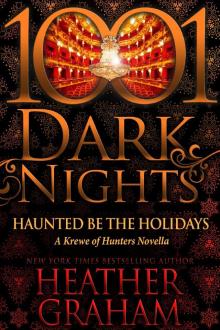 Haunted Be the Holidays
Haunted Be the Holidays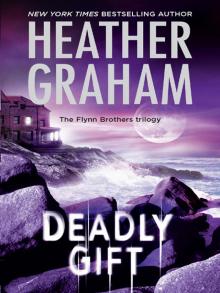 Deadly Gift
Deadly Gift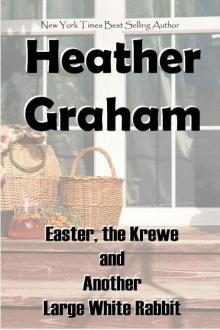 Easter, the Krewe and Another Large White Rabbit
Easter, the Krewe and Another Large White Rabbit Haunted
Haunted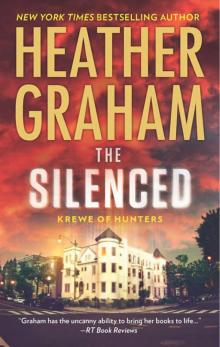 The Silenced
The Silenced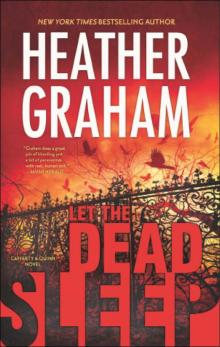 Let the Dead Sleep
Let the Dead Sleep Christmas, the Krewe, and Kenneth
Christmas, the Krewe, and Kenneth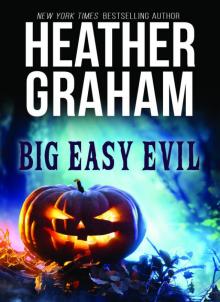 Big Easy Evil
Big Easy Evil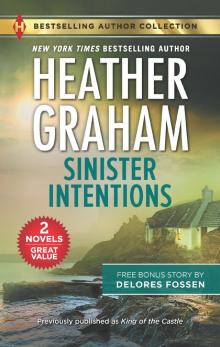 Sinister Intentions & Confiscated Conception
Sinister Intentions & Confiscated Conception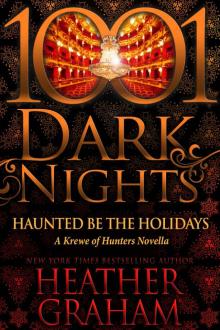 Haunted Be the Holidays: A Krewe of Hunters Novella
Haunted Be the Holidays: A Krewe of Hunters Novella Blood Red
Blood Red A Perilous Eden
A Perilous Eden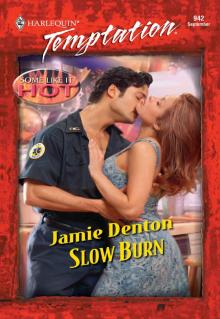 Slow Burn
Slow Burn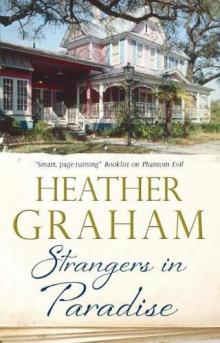 Strangers In Paradise
Strangers In Paradise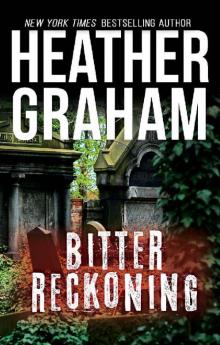 Bitter Reckoning
Bitter Reckoning Krewe of Hunters, Volume 1: Phantom Evil ; Heart of Evil ; Sacred Evil ; The Evil Inside
Krewe of Hunters, Volume 1: Phantom Evil ; Heart of Evil ; Sacred Evil ; The Evil Inside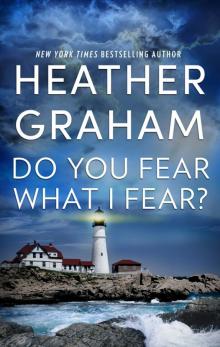 Do You Fear What I Fear?
Do You Fear What I Fear?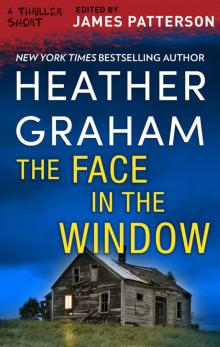 The Face in the Window
The Face in the Window Krewe of Hunters, Volume 3: The Night Is WatchingThe Night Is AliveThe Night Is Forever
Krewe of Hunters, Volume 3: The Night Is WatchingThe Night Is AliveThe Night Is Forever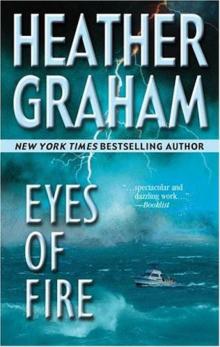 Eyes of Fire
Eyes of Fire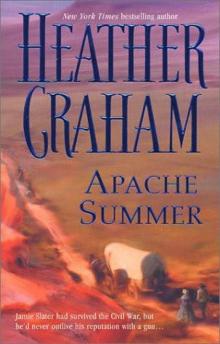 Apache Summer sb-3
Apache Summer sb-3 Sensuous Angel
Sensuous Angel In the Dark
In the Dark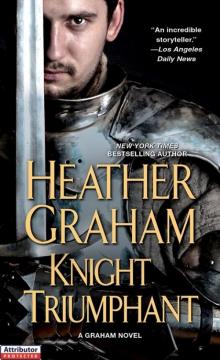 Knight Triumphant
Knight Triumphant Hours to Cherish
Hours to Cherish Tender Deception
Tender Deception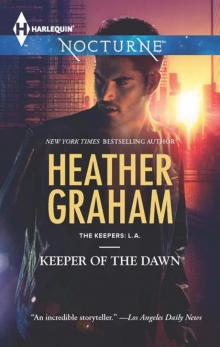 Keeper of the Dawn tkl-4
Keeper of the Dawn tkl-4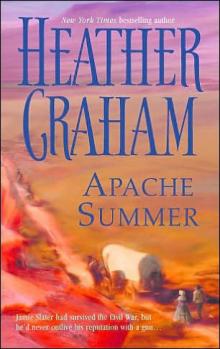 Apache Summer
Apache Summer Between Roc and a Hard Place
Between Roc and a Hard Place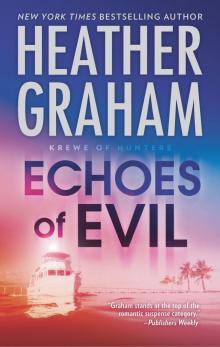 Echoes of Evil
Echoes of Evil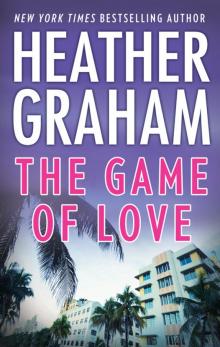 The Game of Love
The Game of Love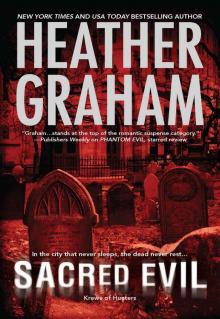 Sacred Evil (Krewe of Hunters)
Sacred Evil (Krewe of Hunters)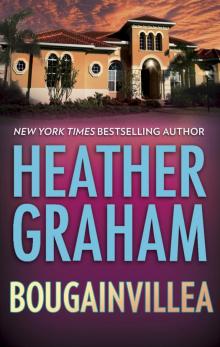 Bougainvillea
Bougainvillea Tender Taming
Tender Taming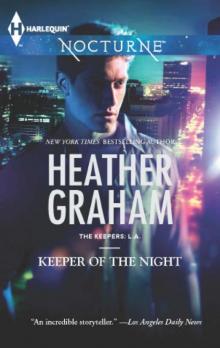 Keeper of the Night (The Keepers: L.A.)
Keeper of the Night (The Keepers: L.A.)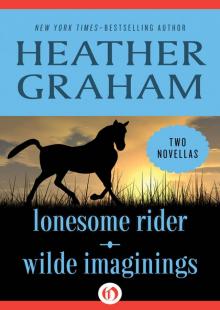 Lonesome Rider and Wilde Imaginings
Lonesome Rider and Wilde Imaginings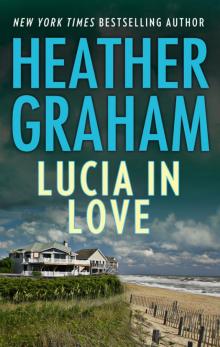 Lucia in Love
Lucia in Love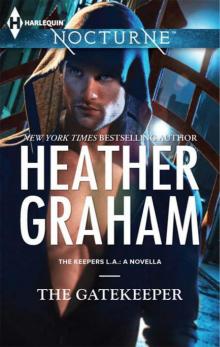 The Gatekeeper
The Gatekeeper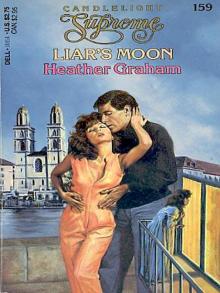 Liar's Moon
Liar's Moon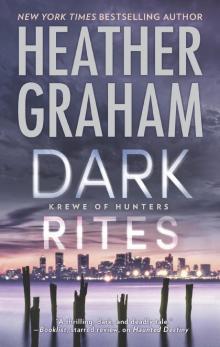 Dark Rites--A Paranormal Romance Novel
Dark Rites--A Paranormal Romance Novel A Season for Love
A Season for Love Krewe of Hunters, Volume 6: Haunted Destiny ; Deadly Fate ; Darkest Journey
Krewe of Hunters, Volume 6: Haunted Destiny ; Deadly Fate ; Darkest Journey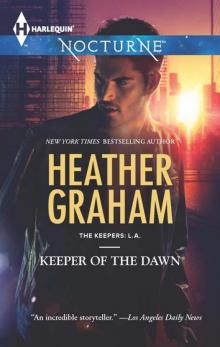 Keeper of the Dawn (The Keepers: L.A.)
Keeper of the Dawn (The Keepers: L.A.)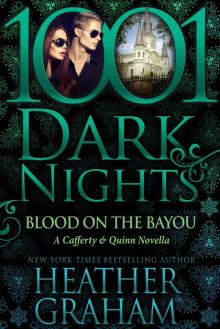 Blood on the Bayou: A Cafferty & Quinn Novella
Blood on the Bayou: A Cafferty & Quinn Novella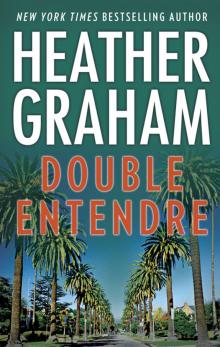 Double Entendre
Double Entendre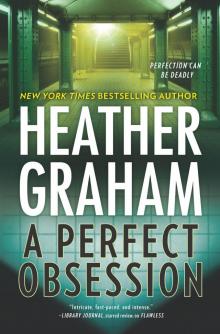 A Perfect Obsession--A Novel of Romantic Suspense
A Perfect Obsession--A Novel of Romantic Suspense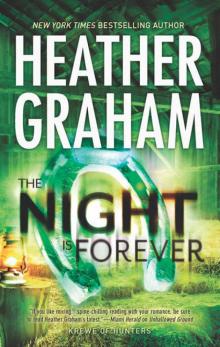 The Night Is Forever koh-11
The Night Is Forever koh-11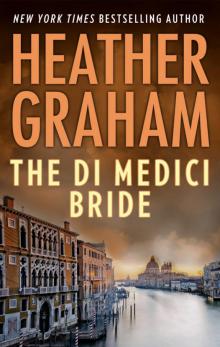 The Di Medici Bride
The Di Medici Bride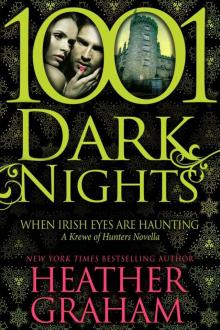 When Irish Eyes Are Haunting: A Krewe of Hunters Novella
When Irish Eyes Are Haunting: A Krewe of Hunters Novella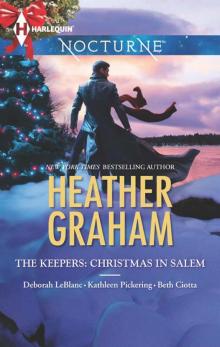 The Keepers: Christmas in Salem: Do You Fear What I Fear?The Fright Before ChristmasUnholy NightStalking in a Winter Wonderland (Harlequin Nocturne)
The Keepers: Christmas in Salem: Do You Fear What I Fear?The Fright Before ChristmasUnholy NightStalking in a Winter Wonderland (Harlequin Nocturne)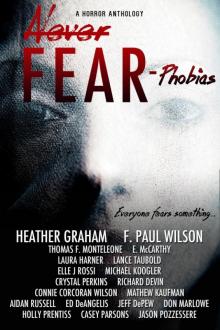 Never Fear
Never Fear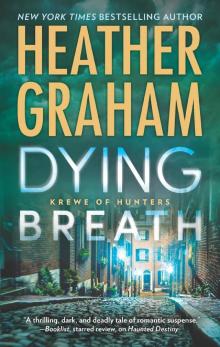 Dying Breath--A Heart-Stopping Novel of Paranormal Romantic Suspense
Dying Breath--A Heart-Stopping Novel of Paranormal Romantic Suspense If Looks Could Kill
If Looks Could Kill This Rough Magic
This Rough Magic Heather Graham's Christmas Treasures
Heather Graham's Christmas Treasures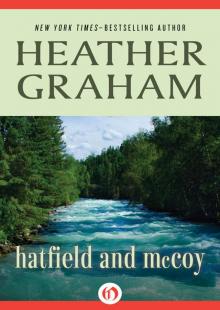 Hatfield and McCoy
Hatfield and McCoy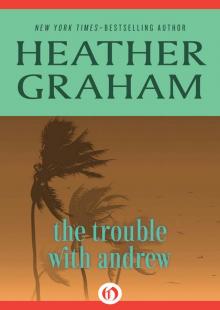 The Trouble with Andrew
The Trouble with Andrew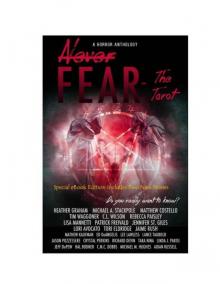 Never Fear - The Tarot: Do You Really Want To Know?
Never Fear - The Tarot: Do You Really Want To Know?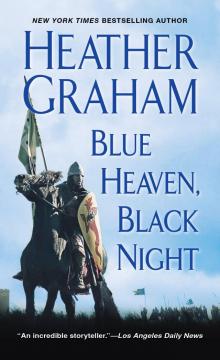 Blue Heaven, Black Night
Blue Heaven, Black Night Forbidden Fire
Forbidden Fire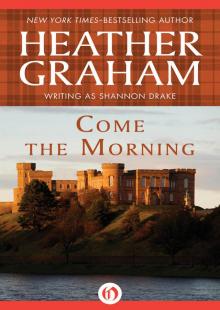 Come the Morning
Come the Morning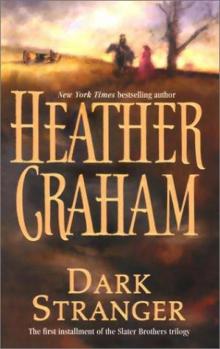 Dark Stranger sb-4
Dark Stranger sb-4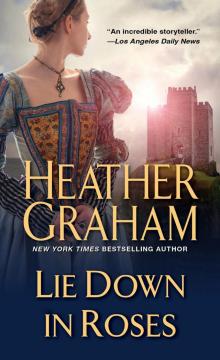 Lie Down in Roses
Lie Down in Roses Red Midnight
Red Midnight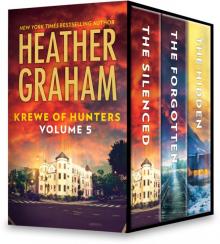 Krewe of Hunters Series, Volume 5
Krewe of Hunters Series, Volume 5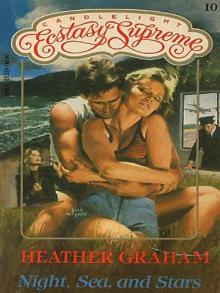 Night, Sea, And Stars
Night, Sea, And Stars Snowfire
Snowfire Quiet Walks the Tiger
Quiet Walks the Tiger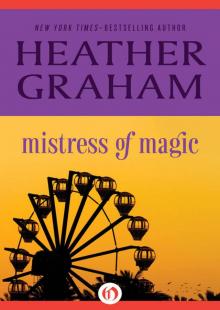 Mistress of Magic
Mistress of Magic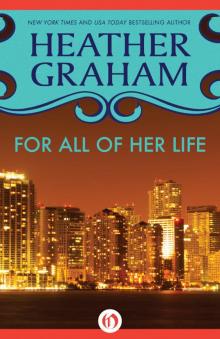 For All of Her Life
For All of Her Life Runaway
Runaway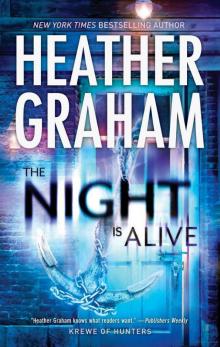 The Night Is Alive koh-10
The Night Is Alive koh-10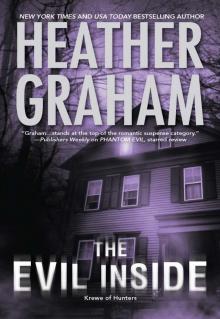 The Evil Inside (Krewe of Hunters)
The Evil Inside (Krewe of Hunters)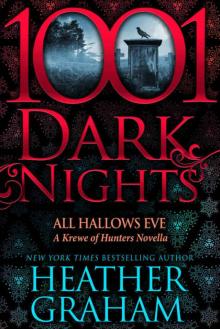 All Hallows Eve: A Krewe of Hunters Novella (1001 Dark Nights)
All Hallows Eve: A Krewe of Hunters Novella (1001 Dark Nights)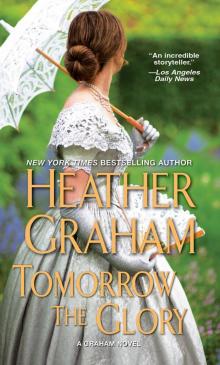 Tomorrow the Glory
Tomorrow the Glory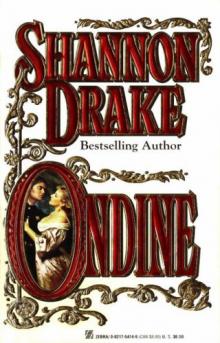 Ondine
Ondine Angel of Mercy & Standoff at Mustang Ridge
Angel of Mercy & Standoff at Mustang Ridge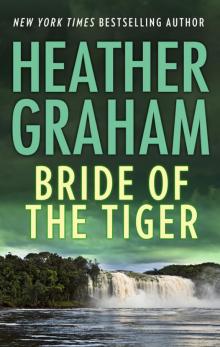 Bride of the Tiger
Bride of the Tiger When Next We Love
When Next We Love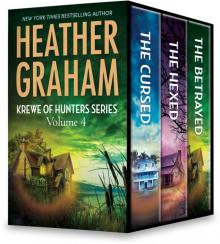 Heather Graham Krewe of Hunters Series, Volume 4
Heather Graham Krewe of Hunters Series, Volume 4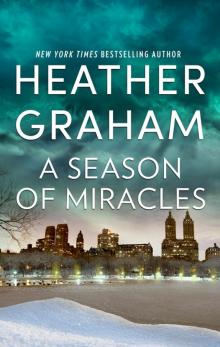 A Season of Miracles
A Season of Miracles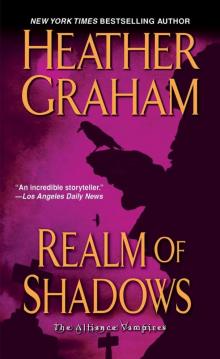 Realm of Shadows (Vampire Alliance)
Realm of Shadows (Vampire Alliance)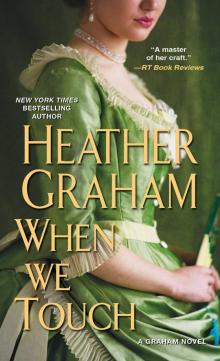 When We Touch
When We Touch Serena's Magic
Serena's Magic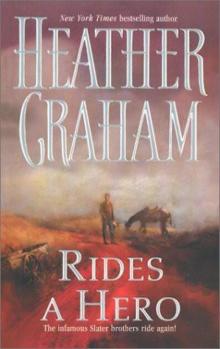 Rides a Hero sb-2
Rides a Hero sb-2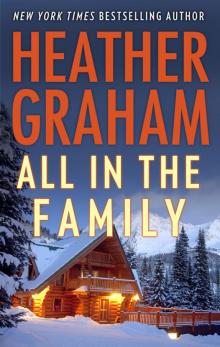 All in the Family
All in the Family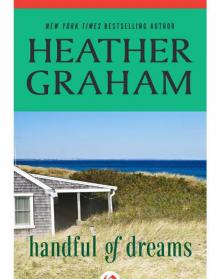 Handful of Dreams
Handful of Dreams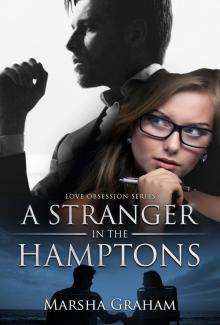 A Stranger in the Hamptons
A Stranger in the Hamptons Krewe of Hunters, Volume 2: The Unseen ; The Unholy ; The Unspoken ; The Uninvited
Krewe of Hunters, Volume 2: The Unseen ; The Unholy ; The Unspoken ; The Uninvited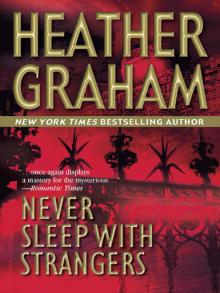 Never Sleep With Strangers
Never Sleep With Strangers Eden's Spell
Eden's Spell A Magical Christmas
A Magical Christmas Forever My Love
Forever My Love King of the Castle
King of the Castle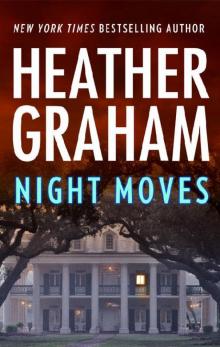 Night Moves (60th Anniversary)
Night Moves (60th Anniversary) The Island
The Island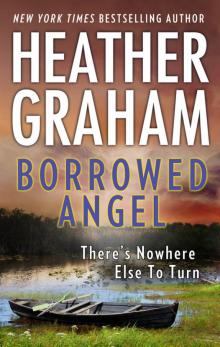 Borrowed Angel
Borrowed Angel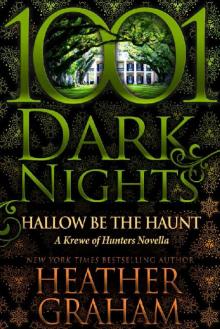 Hallow Be the Haunt: A Krewe of Hunters Novella
Hallow Be the Haunt: A Krewe of Hunters Novella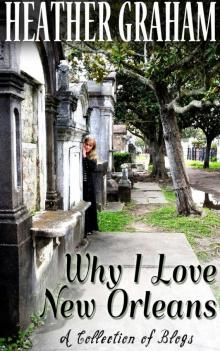 Why I Love New Orleans
Why I Love New Orleans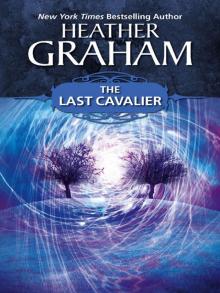 The Last Cavalier
The Last Cavalier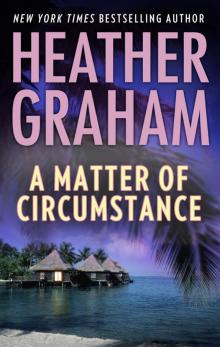 A Matter of Circumstance
A Matter of Circumstance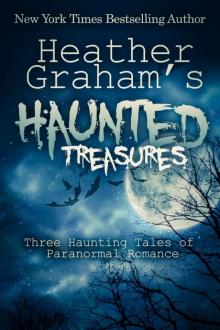 Heather Graham's Haunted Treasures
Heather Graham's Haunted Treasures Tempestuous Eden
Tempestuous Eden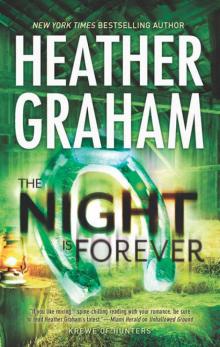 Krewe 11 - The Night Is Forever
Krewe 11 - The Night Is Forever